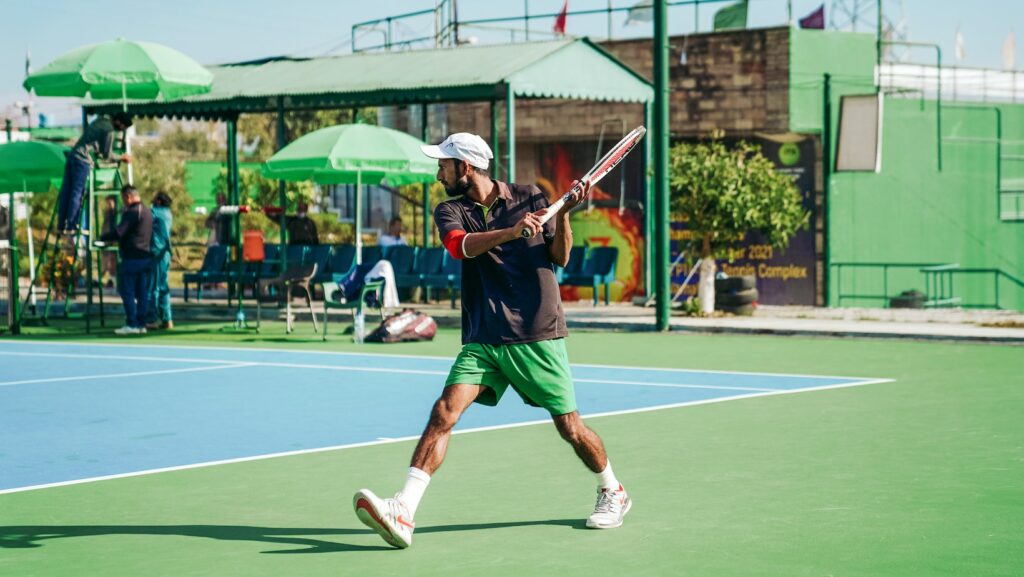How Can Individual Sports Positively Influence Social Health?
Individual sports have the power to positively influence our social health in several ways. When we participate in activities such as running, swimming, or cycling, we not only improve our physical well-being but also enhance our social connections and overall mental wellness.
Table of Contents
ToggleOne of the key ways individual sports promote social health is by fostering a sense of belonging and camaraderie. Engaging in these activities provides opportunities to join clubs or teams, where like-minded individuals gather to pursue their passion for the sport. Through shared experiences, training sessions, and competitions, friendships are formed and a supportive community is established. This sense of belonging can greatly contribute to our overall social well-being.
Moreover, participating in individual sports offers an avenue for personal growth and self-confidence. As we set goals and work towards achieving them in these disciplines, we develop a strong sense of self-belief and accomplishment. This newfound confidence extends beyond the realm of sports and positively impacts how we interact with others in various social settings. It encourages us to step out of our comfort zones, engage in conversations with new people, and build stronger relationships.
Individual sports play a vital role in enhancing our social health by creating opportunities for connection, fostering a sense of belonging within communities, and building self-confidence that extends beyond the sporting arena. So lace up those running shoes or grab your tennis racket – it’s time to embrace the positive impact that individual sports can have on our lives!

The Benefits of Individual Sports
Individual sports offer numerous benefits that positively influence social health. Let’s take a closer look at how engaging in individual sports can have a positive impact on our overall well-being and social interactions.
- Self-confidence: Participating in individual sports allows individuals to build self-confidence as they set personal goals, work towards achieving them, and see improvements over time. This increased self-confidence translates into other areas of life, boosting social interactions and creating a positive self-image.
- Personal Responsibility: Individual sports require individuals to take ownership of their performance and results. They learn the importance of discipline, commitment, and perseverance. These qualities not only enhance their athletic abilities but also carry over into their social lives by fostering responsibility towards others.
- Stress Relief: Engaging in individual sports provides an outlet for stress relief and helps individuals manage anxiety or tension effectively. Regular exercise releases endorphins, which improve mood and reduce stress levels. As a result, individuals are better equipped to handle social situations with a calm demeanor.
- Goal Setting: Individual sports encourage setting both short-term and long-term goals, providing direction and focus for athletes’ efforts. By setting goals in their athletic pursuits, individuals develop goal-setting skills applicable to various aspects of life, including personal relationships and career aspirations.
- Independence: Unlike team sports where success relies on collective effort, individual sports empower athletes to rely solely on themselves for success or improvement. This independence fosters self-reliance, resourcefulness, and problem-solving skills that positively contribute to interpersonal relationships outside the sporting arena.
- Time Management: Engaging in individual sports requires effective time management skills to balance training sessions with other commitments such as work or studies. Learning how to allocate time efficiently enhances productivity both on and off the field while allowing individuals to maintain healthy social connections.
- Community Engagement: Although individual sports may seem solitary, they often have vibrant and supportive communities that provide a sense of belonging. Athletes can connect with like-minded individuals, participate in events or competitions, and share their experiences. These interactions foster social connections and create opportunities for collaboration.
Individual sports require dedication and discipline to maintain consistent training routines. By adhering to a structured schedule, athletes develop valuable skills such as time management, goal setting, and perseverance. These qualities not only contribute to improved physical performance but also translate into other areas of life, including maintaining healthy relationships with others.
In conclusion, individual sports offer a range of benefits that positively influence social health. From boosting self-confidence to cultivating independence and fostering community engagement, engaging in individual sports can have a transformative impact on individuals’ overall well-being. So lace up your shoes or grab your racket – it’s time to reap the rewards of individual sports!











